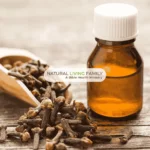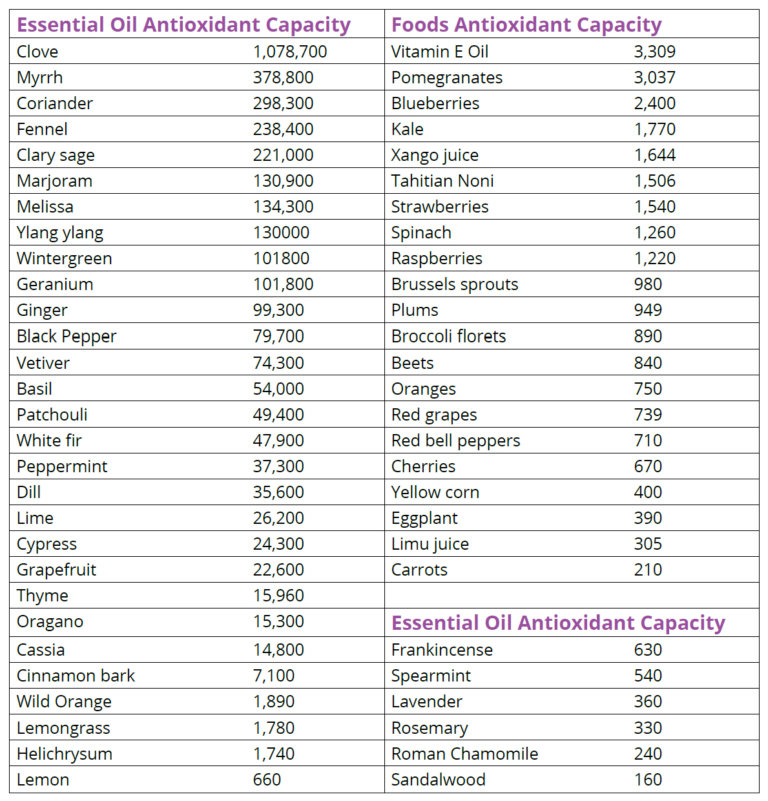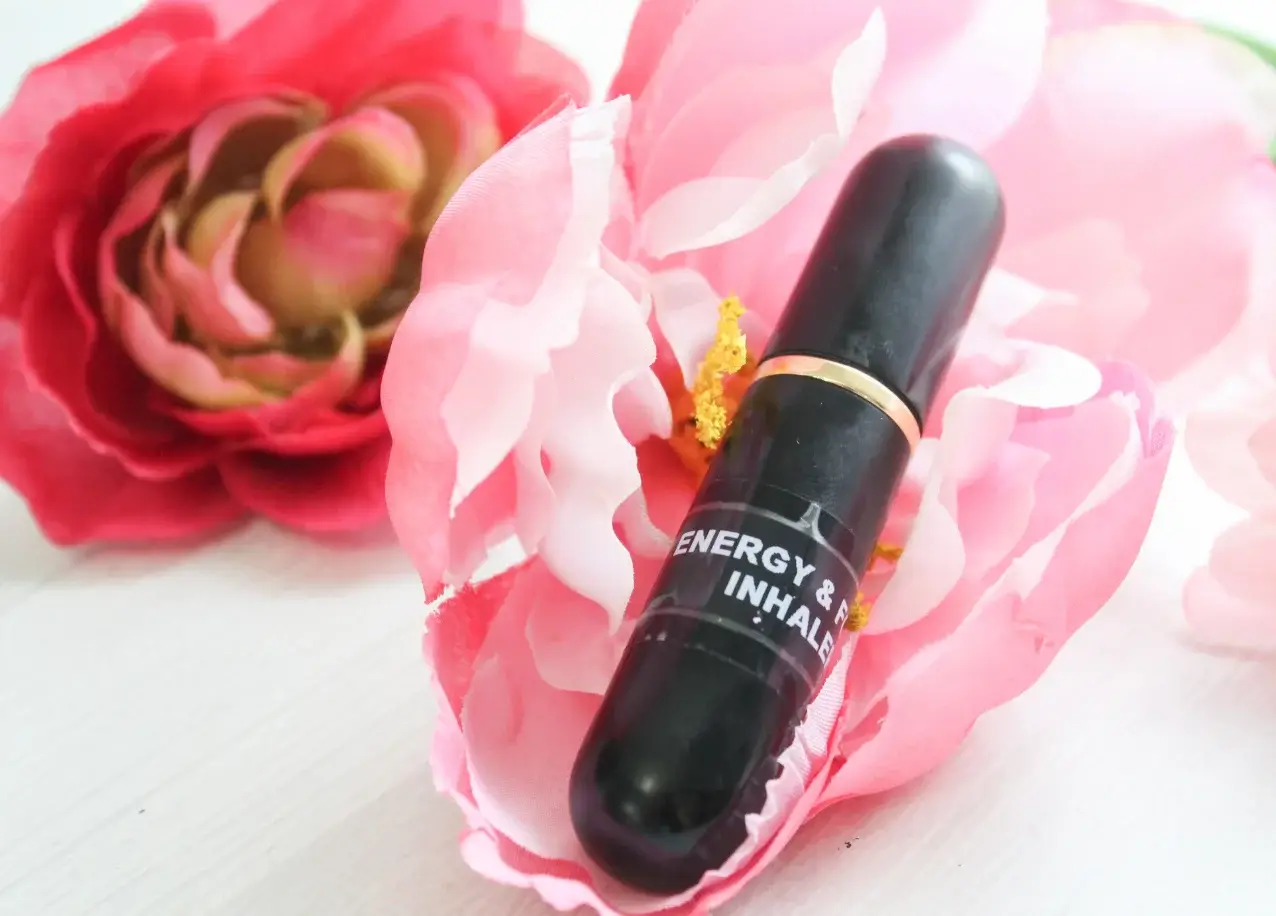Primarily because of its eugenol derivatives, clove essential oil benefits the body in powerful ways. Arguably a substance with the strongest antioxidant qualities in the world, clove oil is a staple in alternative wellness remedies spanning cultures, generations, and traditions. Its anti-inflammatory and antioxidant activity levels are hard to beat. Let’s see why…
In this article, you will learn about:
Clove Spice Uses
For millennia, clove trees (Eugenia caryophyllata) have been harvested for their fragrant buds, and powdered into a spice. Clove buds gained global interest a couple of hundred years after the Chinese first documented their use.
Just as its parent plant is evergreen, thriving in every season, clove essential oil uses prove to be strong and adaptable. Clove’s first form is the handpicked flower buds of the Eugenia caryophyllata of the Maluku Islands in Indonesia. Each bud is picked by hand and then dried until the pink blossoms have turned brown. From there, the dried clove buds are ground and used in cooking or made into a clove extract tincture.
Clove’s nutritional profile and bioactive properties are impressive, as well. They are a good source of vitamin K, fiber, iron, magnesium, and calcium. Most impressively, two teaspoons of ground clove boast over 120% of our daily need for manganese, a mineral that is implicated in the prevention of osteoporosis, anemia, and premenstrual syndrome (PMS). (1) Clove extracts in alcohol are made by herbalists to flavor food or as herbal tinctures for medicinal, eco-friendly treatments at home.
And of course, clove buds are distilled to make the amazing clove bud essential oil we know and love and want to talk about more in-depth here.
Learn more about our favorite healthy herbs and spices.
Learn more about how to use essential oils safely and effectively with our exclusive essential oil dilution guide.
Antioxidant Power of Clove
More and more, researchers are discovering just how powerful antioxidants are and how they act as a mechanism of action for total health and wellness. The National Institute on Aging developed a way for us to quantify antioxidant capability in the Oxygen Radical Absorbance Capacity (ORAC) system of measurement.
Within the ORAC system, the antioxidant action of cloves comes in as one of the highest-valued antioxidant qualities of any substance on the list. In fact, the antioxidant activity, towers over sorghum, the next on the list, by a difference of more than 50,000. (2) This means that clove is a key ingredient for anyone who wants to use the antioxidant action to detox and rid their body of harmful free radicals. As a concentrated essential oil, there is simply no comparison. However, some sources claim the following:
Disclaimer: once hosted by the USDA website, a peer-reviewed table of ORAC-valued peer-reviewed resources is not available. The above chart is from BioSource Naturals.
A Note about ORAC Values in Clove
While the ins and outs of free radicals and antioxidant action aren’t necessary to commit to memory, it’s important to acknowledge the healing power that antioxidants carry. It’s also wise to become familiar with anti-inflammatory and antioxidant activity levels in various foods and substances. The stronger the antioxidant level, the more you want to utilize that food, spice, or essential oil.
To break antioxidants down to a basic level, they are, on a molecular level, able to target and eliminate free radicals, and then reverse the damage that has been done. Free radicals are also molecules, but they set in motion a cascade of cellular problems that can lead to cell death and even encourage the growth of cancer cells. The cellular-level repair that antioxidants are able to accomplish is well-studied, with research connecting it to slowed aging and inhibited disease processes. The strong antioxidant properties is what gives clove oil its “anticancer effects” in research and news articles.
In short, antioxidants are a wellspring of healing, and clove essential oil has some properties that are potential sources of antioxidants. The primary component of clove essential oil is Eugenol. So let’s examine what benefits the action of eugenol and the advantages of clove oil, beyond strong antioxidant action.
4 Common Clove Essential Oil Benefits
With all of that antioxidant healing power of eugenol in clove essential oil (Eugenia caryophyllata) you probably already have a feel for the potential that it carries. With great power comes great responsibility, though, and clove essential oil carries as much potential for damage as it does for healing.
A recent study, published in the Journal of Immunotoxicology, demonstrates this balance between effectiveness and caution. After investigating the effects of eugenol – clove bud essential oil’s most prominent property – on the liver, they discovered two sides of one coin. Eugenol in low doses protects the liver, not only against at least one cause of liver disease but also against inflammation and cell death. On the other hand, “a larger dose amplifies the liver injury via oxidant and inflammatory effects.” (3)
This is both good news and a warning:
- CEO is a powerful substance.
- Powerful substances should be handled carefully, under the guidance of knowledge, wisdom, and common sense.
With this caution in mind, we can explore the benefits of clove bud essential oil when used safely and appropriately – and there are many benefits!
Learn more about how to use essential oils safely and effectively with our exclusive essential oil dilution guide.
We’ve already seen clove essential oil uses related to anti-inflammatory capability, and with inflammatory illness so heavily plaguing our society, you can imagine the implications that has. Other effects of eugenol derivatives make this component of cloves beneficial for disease prevention and oral health. Let’s explore just a few of these properties in light of current research regarding the benefits of clove oil.
1. Antibacterial Activity
Clove essential oil is widely understood to contain antibacterial properties, but the University of Buenos Aires took the time to pinpoint bacteria that clove was especially able to target. They found that E. coli was particularly susceptible to clove bud oil, followed by Staph aureus and Pseudomonas aeruginosa. With all of these connected to significant illness, skin infections, and pneumonia, the antibacterial effects of clove essential oil is a valuable tool for disease prevention. (4)
The action of eugenol—a chemical component strongly present in clove oil–is strong with antiseptic properties and antibacterial activity. It makes clove bud essential oil a superhero at killing microorganisms. Clove is often included in immune-boosting blends due to its antimicrobial, antioxidant, and antibacterial properties, enhancing the body’s ability to fight off infections and diseases. That’s because research has shown that clove oil, when combined with other essential oils like eucalyptus, can have enhanced antibacterial effects, making these blends highly effective against bacterial infections. This synergistic antibacterial activity can be especially useful in creating more potent antibacterial formulations for medical and personal care applications. (8)
2. Antifungal
Candida is a devastating, pervasive problem in our culture and remains my personal soapbox. Our diets high in sugar and acidification kill beneficial gut microbes and colonize Candida. Can clove bud essential oil help us here? Science says yes!
In mainstream medicine, nystatin is used to manage yeast infections, though it never addresses the root causes and can bring adverse reactions and side effects of its own. Published in the journal Oral Microbiology & Immunology, researchers weighed the advantages of clove oil against nystatin in vitro, finding it just as effective, but as a natural substance rather than synthetic chemical concoction. (5)
3. Oral Health
Clove essential oil is a longtime dental remedy, dating back to 1640 in French documentation “Practice of Physic,” and beyond in Chinese tradition. To this day, clove remains a go-to for dental needs. Clove essential oil is highly effective in slowing tooth decay and is often used as a natural alternative to fluoride in toothpaste. It is particularly beneficial for oral health due to its antimicrobial and antibacterial activity which helps protect against cavities, dental erosion, and other oral health issues. It is also used for canker sores, halitosis, and sensitive teeth.
Clove bud essential oil has proven effective in inhibiting tooth decalcification and dental erosion caused by apple juice. (9) CEO’s dental benefits extend to slowed decay and remineralization. Underscoring this point, the Indian Department of Public Health Dentistry conducted a controlled study to evaluate clove essential oil, its lead molecules, and fluoride against decay caused by apple juice. CEO emerged as a promising mineralization tool, “significantly” decreasing decalcification, and promoting the remineralizing teeth. (7)
This is part of the reason we often mention adding a couple of drops of clove oil to your oil-pulling base for more dental hygiene benefits.
Learn more about essential oils for oral health in our report here.
4. Analgesic and Antiseptic
The Journal of Dentistry published a comparison between clove bud essential oil in a gel and benzocaine, the topical analgesic (numbing agent) that precedes needles in dentistry. In over seventy participants, no difference was recorded between benzocaine topical analgesics and CEO gel, indicating the same numbing effects. This is handy if you’re someone who has allergic reactions to prescription pain medications. (6)
Aside from pain relief and numbing for dental procedures, applying a blend containing clove oil directly on canker sores can provide relief and aid in healing. Clove oil’s antiseptic properties make it effective in reducing the pain and inflammation associated with canker sores. Additionally, a study with mice evaluated the anti-inflammatory effects and pain-relieving activities of clove oil in mice. The study even showed that it had some fever-reducing effects as well.
Of course, this study was done with animal models, but it does seem to indicate that clove bud essential oil could be used as an effective treatment against pain without the side effects of OTC medications. The results indicated that clove bud oil possesses significant pain-relieving properties, which has implications for safely managing pain and inflammation. (10)
Recommended Clove Essential Oil Uses
Clove bud oil works well when blended with other oils. Personally, I enjoy an immunity blend of equal parts cinnamon, clove, eucalyptus, rosemary, orange, and lemon essential oils to harness the antibacterial action. When using clove, be sure to always dilute! It will burn your skin if you don’t and should always be used with much caution. With that said, don’t be afraid of using it as clove is a highly versatile oil.
Here are some easy oral health applications using clove bud essential oil:
- Oil Pulling – add a couple drops of clove oil to your coconut oil base to utilize its antibacterial action.
- DIY Toothpaste – the advantages of clove oil shine for oral health and cavity prevention.
- DIY Mouthwash – clove bud essential oil is the secret ingredient to a homemade oral rinse.
For antioxidant activities and immune support during seasonal threats, make my Immunity Boosting Shot!

Immunity Boosting Shot
Quantity
Ingredients
- 1 packet Lypo-Spheric Vitamin C
- 1 teaspoon raw honey
- 1 teaspoon unrefined coconut oil
- 1-2 drops Immune Boost Blend Essential Oils*
- ¼ teaspoon organic pumpkin pie spice
- tiny pinch pink Himalayan salt
Instructions
- Add the EO to the coconut oil first and mix.
- Mix with the remaining ingredients in a glass bowl and enjoy twice daily at the onset of a cold for up to two weeks at a time.
- Wash down with pure, filtered water.
- Be sure to not use for more than two weeks at a time.
- Note – This can be enjoyed straight or with a little bit of water to wash it down.
Notes
It is not recommended to add this mixture to boiling tea because this will kill the enzymes in the honey and can alter the composition of the essential oils and vitamin C. If you want to add to your tea, make sure it is cooled down to room temperature.
The more you utilize the essential oil of cloves for its antimicrobial properties, the more you’ll appreciate the effective treatments and remedies you can create right at home. Between the antibacterial action and the high levels of antioxidants, you’ll want to make the most of all the advantages of clove oil for health and healing it has to offer you.
- http://www.superfoodly.com/orac-values/
- http://www.superfoodly.com/orac-value/spices-cloves-ground/
- http://www.ncbi.nlm.nih.gov/pubmed/24099633
- http://www.ncbi.nlm.nih.gov/pubmed/24031950
- http://www.ncbi.nlm.nih.gov/pubmed/15720571
- http://www.ncbi.nlm.nih.gov/pubmed/16530911
- http://www.ncbi.nlm.nih.gov/pubmed/22997520
- https://pubmed.ncbi.nlm.nih.gov/8893526/
- https://www.ncbi.nlm.nih.gov/pmc/articles/PMC3432374/
- https://pubmed.ncbi.nlm.nih.gov/26333873/












